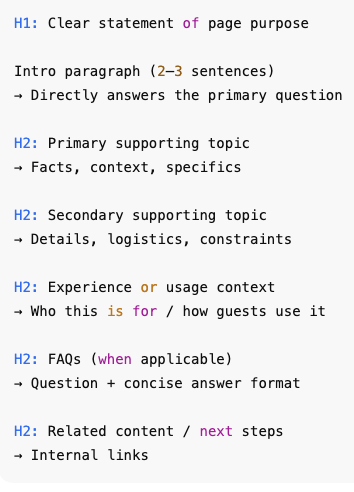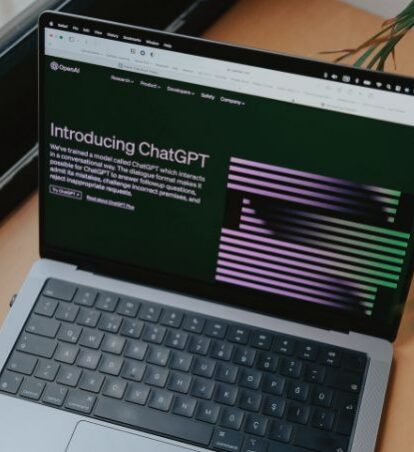How data platforms turn brand authority into durable AI visibility
In the first two posts in this series, "Why AI visibility ultimately collapses back to data" and "AI doesn’t rank hotels. It learns which ones to trust," we reframed how AI visibility actually works.
We explored why AI-driven discovery collapses back to data, not prompts or shortcuts. We examined how brand authority is inferred from patterns in that data rather than declared through content or optimization tactics.
That brings us to the most practical question in the series:
If AI visibility depends on performance-backed authority, how do hotels actually improve the performance that creates it?
Brand authority isn’t created in AI. It’s earned in marketing.
Most hotels already generate demand.
They attract travelers.
They invest in media.
They drive traffic.
They convert bookings.
They earn repeat stays and reviews.
Brand authority isn’t missing. It’s being earned every day through marketing performance.
The challenge is that this performance data lives across many systems and is rarely analyzed together in a way that leads to better decisions.
AI doesn’t need perfect data from hotels. It simply observes outcomes.
Hotels, however, do need visibility into their own performance if they want to improve those outcomes intentionally.
What a data platform actually does
A data platform does not aggregate the signals that power AI results. It does not feed AI systems. It does not act as an intermediary between hotels and discovery engines.
Instead, its role is upstream and operational.
A data platform ingests a hotel or resort’s own marketing and performance data and turns it into insight that enables better optimization decisions.
It helps hotels understand:
- Which channels are actually driving incremental demand
- How different media investments affect direct bookings
- Where pricing, availability, and messaging create friction
- Which efforts are efficient and which are quietly eroding ROI
In short, a data platform helps hotels improve what they already control.
AI benefits later by observing the results.
Optimization is the mechanism that strengthens authority
Brand authority is inferred from outcomes, not intentions.
Those outcomes are shaped by everyday optimization decisions:
- How budgets are allocated
- Which channels are emphasized
- How pricing and availability interact with demand
- How effectively direct booking paths convert
When hotels lack a unified view of performance, optimization happens in silos. Channels are judged independently. Success is measured locally. Tradeoffs remain invisible.
A data platform breaks that pattern by connecting marketing performance across channels and tying it directly to business outcomes, especially direct bookings.
This doesn’t create authority. It amplifies the authority a hotel is already earning.
Why direct bookings are the clearest signal to optimize
In an AI-driven ecosystem, direct bookings matter for more than margin.
They represent:
- Brand preference
- Trust in pricing and availability
- Confidence in the guest experience
- Reduced dependency on intermediaries
By ingesting media, conversion, and booking data, it enables hotels to:
- See which efforts truly drive direct demand
- Identify friction in the direct booking journey
- Optimize spend toward efficiency, not just volume
- Reinforce patterns that consistently lead to direct choice
AI doesn’t see optimization decisions. It sees the outcomes of those decisions.
Repeated direct bookings are one of the strongest indicators that a brand is trusted and preferred. Smarter decisions = stronger visibility.
Where AEO fits, clearly and honestly
Answer Engine Optimization (AEO) is not where authority is created. It’s where authority is expressed.
AEO helps ensure that what a hotel has earned through performance and optimization is accurately represented in AI-driven discovery environments through structured content, schema, and distribution formats.
The data platform informs AEO by clarifying:
- What actually performs
- What positioning is reinforced by outcomes
- What messages align with real demand
Without this insight, AEO risks amplifying assumptions. With it, AEO reflects reality.
Optimization strengthens authority. AEO communicates it.
From optimization tactics to durable advantage
AI-driven discovery hasn’t eliminated marketing fundamentals. It’s raised the stakes on them.
Content still matters. Media still matters. Distribution still matters.
But the hotels that win will be the ones that:
- Optimize intelligently
- Understand their performance deeply
- Invest in direct demand
- Reinforce what works over time
A data platform doesn’t change how AI works. It changes how well hotels perform.
And performance is what AI ultimately learns from.
Playing the long game
AI will continue to evolve. Interfaces will change. Discovery paths will shift.
What won’t change is this: AI infers trust from outcomes. Outcomes are shaped by optimization. Optimization depends on insight.
The hotels that win in AI-driven discovery won’t be chasing visibility directly. They’ll be investing in systems that help them make better decisions, drive more direct bookings, and strengthen the authority they already earn every day. AI visibility may feel new, but durable advantage still comes from performance.
Contact GCommerce Solutions to start connecting your AI visibility with your data.



